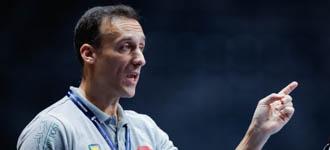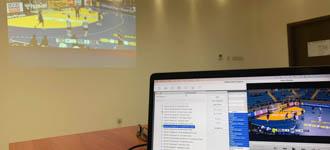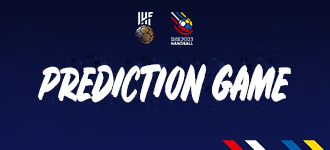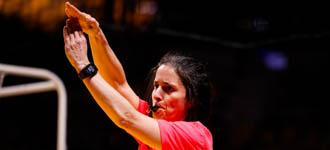A historic moment for the Republic of Korea at Poland/Sweden 2023
11 Jan. 2023

In May 2022, the Republic of Korea took a leap of faith and installed two foreign coaches for the men’s and women’s senior teams for the first time in history.
While Kim Rasmussen was a household name and had plenty of experience in women’s handball, having led Poland and Hungary for the men’s team in the past, the chosen candidate was Rolando Freitas, an experienced coach who laid the foundations for Portugal’s emergence on the big stage, having led both the junior and senior national team at the start of the last decade.
Freitas was no stranger to international handball, but his appointment came as somewhat of a surprise for a truly conservative team. And some things always stay the same: Korea have only one member of the squad playing outside the country at club level, right back Kim Jin-Young, who plies his trade for Ademar León in the ASOBAL, the Spanish League.
Nevertheless, the ambitions are high for a side that has not made it to the main round of the IHF Men’s World Championship since 2009, raking up four consecutive participations in the President’s Cup.
Two years ago, at Egypt 2021, the Republic of Korea finished in 31st place, winning only a single match out of seven, with a young and inexperienced squad due to the COVID-19 measures put in place in the country, which prevented other players from joining the squad.
This time, there is more experience available and Freitas will lead by example, with a clear objective: a step-by-step improvement of a squad that aims to be back among the best.
“It is an honour to be here and I am really motivated to take up this challenge. I believe that we have brand new ideas, a nice identity and a new team that will become better and better in the future,” says Freitas to IHF.info.
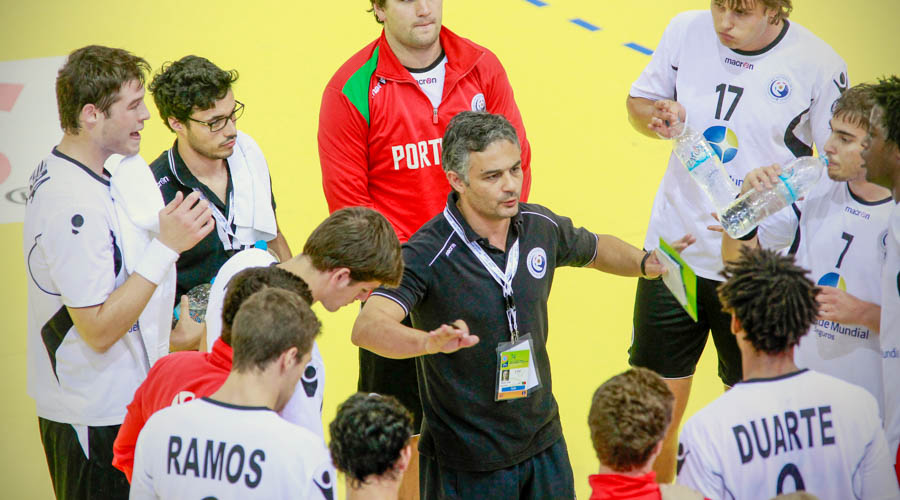
After a fifth-place finish at the 2022 AHF Men’s Handball Championship, Korea needed a new challenge and Freitas was there to oversee the rebuild of the squad. Yet the Asian powerhouse has its own style and handball philosophy, which is quite different from the European one.
Therefore, it was only logical that the Portuguese coach would find it difficult at first to get to know the players and create a symbiosis that would help both himself settle in and the players buy into his methods.
Luckily, everything clicked from the first training sessions and Korea’s players delivered the intensity demanded by the coach and even more.
“After the first training sessions I was quite blown away. The speed was so high that it was pretty difficult to keep up. I needed some headache medication, just something that could keep me in a good mindset,” jokes Freitas.
However, the Portuguese coach who helped Portugal win a silver medal at the M20 EHF EURO 2010 knew that he had something good on his hands, a project that could yield results in the long term, provided the required patience was shown.
“We only have one player who plays in another country at club level and it is a double-edged sword. On the one hand, we lack the experience needed at this level for the World Championship. But on the other hand, we can gather more often than other teams to implement our ideas, it is easier for us. That is helpful,” adds the Portuguese coach.
But what has impressed Freitas most in his eight-month stint as the Republic of Korea coach?
He says that it was not necessarily handball, but the culture which required some adaptation. However, the challenge was truly worth it.
“Talking about culture, true, it is different from Europe, but it is something that everybody needs to experience. It is about respect for the elderly, respect in general, which I find very interesting. I can resonate with it,” says Freitas.
“From a handball point of view, I think the players bought in immediately and the intensity in every game and in every training session is high. For a coach, this is excellent to see.”
That intensity will surely be tested at the 28th IHF Men’s World Championship when the Republic of Korea face Iceland, Portugal and Hungary in the Kristianstad Arena between 12 and 16 January.
All three European sides are vying for a better finish than in the previous tournament and are strong opponents for a side that finds itself in the middle of a rebuild, with a new coach and new players trying to form a better unit.
The match against Portugal will surely be special for Freitas, who knows many of the opponents, having previously coached them in the junior national team between 2005 and 2012 and then for the senior national team between 2012 and 2016.
“The luck was surely not on our side, because the group is very, very tough. You have Hungary, who, under Chema Rodríguez, are starting to play better and better. You have Iceland, who are always ambitious and eye a medal. And, of course, there is Portugal, who have been excellent in recent years,” says Freitas.
What is Korea’s objective then?
“To finish better than at Egypt 2021, when we were 31st. If we can win against one of these European sides, it would be amazing, almost a miracle. But if we go out and play in the President’s Cup, I expect more than one win and a better finish.”
“We will do everything in our power to try and play well, so I expect the players to give it their all,” concludes Freitas.



